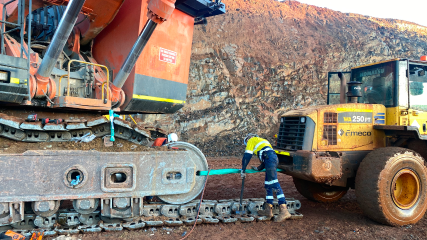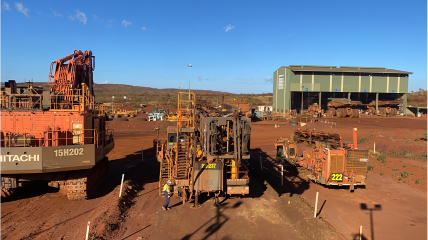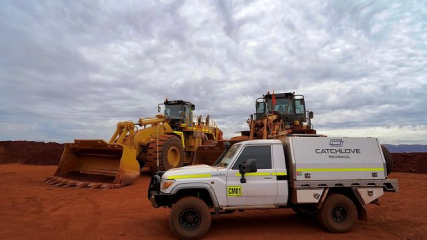
Introduction:
In the realm of heavy machinery, maintenance is the lifeline that ensures optimal performance, longevity, and safety. Understanding the varying maintenance needs across different types of heavy equipment is crucial for industries reliant on these workhorses.
Heavy Equipment Requiring the Most Maintenance:
Excavators:
Excavators are versatile giants in construction and mining, but their intricate hydraulic systems and extensive range of moving parts make them prone to frequent maintenance needs. Regular checks on hydraulic fluid levels, hoses, and hydraulic cylinder seals are essential to prevent costly breakdowns.
Bulldozers:
Bulldozers, while robust and powerful, face high-wear conditions due to constant contact with abrasive materials. The undercarriage components, such as tracks, rollers, and idlers, demand meticulous attention. Regular inspections and timely replacements are necessary to prevent unexpected downtime.
Wheel Loaders:
Wheel loaders endure demanding tasks in material handling. Their hydraulic systems, transmission, and loader arms are subject to heavy stress. Routine inspections of hydraulic hoses, filters, and transmission fluids are vital to keep these machines in top condition.
Cranes:
Cranes are precision instruments used for lifting heavy loads. Their cables, pulleys, and extensive mechanical components require frequent inspections. Load testing, lubrication, and alignment checks are crucial to ensure the safe and efficient operation of cranes.
Motor Graders:
Motor graders are critical for shaping surfaces and ensuring proper grades. Their blade systems and hydraulic components necessitate regular attention. Continuous checks on blade sharpness, hydraulic fluid quality, and alignment are essential for optimal performance.

Heavy Equipment Requiring the Least Maintenance:
Forklifts:
Forklifts are workhorses in material handling but generally require less maintenance compared to other heavy equipment. Regular checks on tires, brakes, and fluid levels, along with timely oil changes and routine lubrication, are usually sufficient to keep forklifts operational.
Dump Trucks:
Dump trucks are designed for robust hauling, and their simplicity often translates to lower maintenance needs. Regular inspections of tires, brakes, and the chassis, along with timely oil changes, contribute to the longevity of dump trucks with minimal effort.
Backhoe Loaders:
Backhoe loaders, with their dual capabilities of excavation and loading, often require less maintenance. Regular checks on hydraulic systems, engine health, and routine greasing of pivot points are typically adequate to keep these machines running smoothly.
Compact Excavators:
Compact excavators, designed for versatility in tight spaces, usually have simpler hydraulic systems. Regular maintenance includes checking tracks, inspecting hydraulic hoses, and ensuring proper lubrication of pivot points for optimal performance.
Skid Steer Loaders:
Skid steer loaders, with their compact design, are known for ease of maintenance. Routine checks on tire conditions, fluid levels, and basic inspections of hydraulic components contribute to the reliability of skid steer loaders with minimal downtime.
Understanding the maintenance needs of different types of heavy equipment is essential for effective machinery management. While some machines demand meticulous attention due to their complexity and heavy workload, others benefit from simpler maintenance routines. Regardless of the type of heavy equipment, a proactive approach to maintenance is key to ensuring safety, longevity, and uninterrupted productivity in various industries.





 Working Time: Mon-Sat: 9 AM – 5 PM
Working Time: Mon-Sat: 9 AM – 5 PM Email:
Email:
Post a Comment